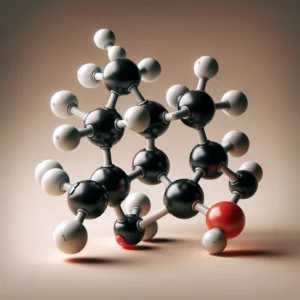What is BHB? A Key to Body Energy Metabolism
What is exactly BHB?
In the quest for understanding the body’s intricate energy systems, one molecule stands out for its unique role and benefits: β-Hydroxybutyrate (BHB). This ketone body, often overshadowed by the more commonly known glucose, is a powerhouse of energy and a beacon of health potential. But what exactly is BHB, and why is it gaining attention in scientific and wellness communities?

- β-Hydroxybutyrate (BHB): A ketone body produced by the liver from fatty acids during periods of fasting, prolonged exercise, low carbohydrate diets, or starvation.
- Ketogenesis: The process of ketone body production, including BHB, occurs primarily in the liver’s mitochondria.
Understanding BHB: The Basics
β-Hydroxybutyrate, or BHB, is more than just a fuel source; it’s a versatile molecule produced in the liver from fatty acids during periods of low carbohydrate intake, fasting, or intense physical activity. Unlike fatty acids, BHB is water-soluble, allowing it to travel easily through the bloodstream and deliver energy to cells, including those in the brain.
Functions of BHB in the Body
- Energy Production:
- When glucose availability is low, BHB serves as an alternative energy source.
- It can cross the blood-brain barrier and provide energy to the brain, which is crucial during periods of low glucose supply.
- Metabolic Regulation:
- BHB helps regulate metabolism by signaling body cells to utilize fat as fuel, thereby supporting weight loss and energy efficiency.
- It influences gene expression related to oxidative stress and inflammation, contributing to its protective roles.
- Signal Molecule:
- Beyond its role as an energy substrate, BHB acts as a signaling molecule, affecting cellular processes like inflammation, oxidative stress, and aging.
- It can inhibit enzymes involved in inflammation and oxidative stress, thus having potential anti-inflammatory and antioxidant effects.
The Role of BHB in Energy Metabolism Traditionally, glucose is viewed as the body’s primary energy source. However, during prolonged exercise, fasting, or a ketogenic diet, glucose reserves deplete, and the body begins converting fat into ketones, like BHB, for energy. This metabolic shift not only sustains energy levels but also supports weight loss and improves metabolic efficiency.
Clinical and Health Implications
- Ketogenic Diet: A diet high in fats and low in carbohydrates can increase BHB levels, mimicking the state of fasting or starvation, often used therapeutically for conditions like epilepsy.
- Exercise and Endurance: Elevated BHB levels during prolonged exercise can improve endurance by providing an efficient energy source.
- Potential Therapeutic Uses: Research is exploring BHB’s role in treating or managing conditions like neurodegenerative diseases, diabetes, and cardiovascular diseases.
BHB’s Impact on Brain Health BHB’s ability to cross the blood-brain barrier makes it a critical energy source during periods of low glucose availability. This attribute is particularly beneficial for brain health, providing an alternative energy source that can enhance cognitive function, protect neural cells, and potentially alleviate symptoms of neurological diseases.
BHB as a Signaling Molecule Beyond its role in energy production, BHB acts as a signaling molecule, influencing various cellular processes. It has been shown to regulate inflammation, reduce oxidative stress, and even affect gene expression related to aging and disease. These signaling functions highlight BHB’s potential in modulating disease processes and aging.
Therapeutic Potential of BHB The interest in BHB extends to its therapeutic applications. Its ability to mimic the effects of fasting or caloric restriction makes it a subject of interest in treating conditions like epilepsy, obesity, type 2 diabetes, and even certain neurodegenerative diseases. Moreover, the anti-inflammatory and antioxidant properties of BHB offer promising avenues for research in chronic disease management and longevity.
BHB in Diet and Lifestyle Incorporating BHB into one’s lifestyle is primarily achieved through dietary means like the ketogenic diet, which emphasizes high fat and low carbohydrate intake. Alternatively, exogenous BHB supplements are available, providing a direct source of this ketone body without the need for dietary restrictions.
Conclusion
β-Hydroxybutyrate (BHB) is more than just a metabolic byproduct; it’s a vital player in energy metabolism, brain function, and cellular signaling. As we uncover more about BHB’s roles and benefits, its potential to revolutionize our approach to health, wellness, and disease management becomes increasingly clear. Embracing the power of BHB could lead to novel health strategies that enhance longevity and quality of life, marking a new era in medical science and personal health.